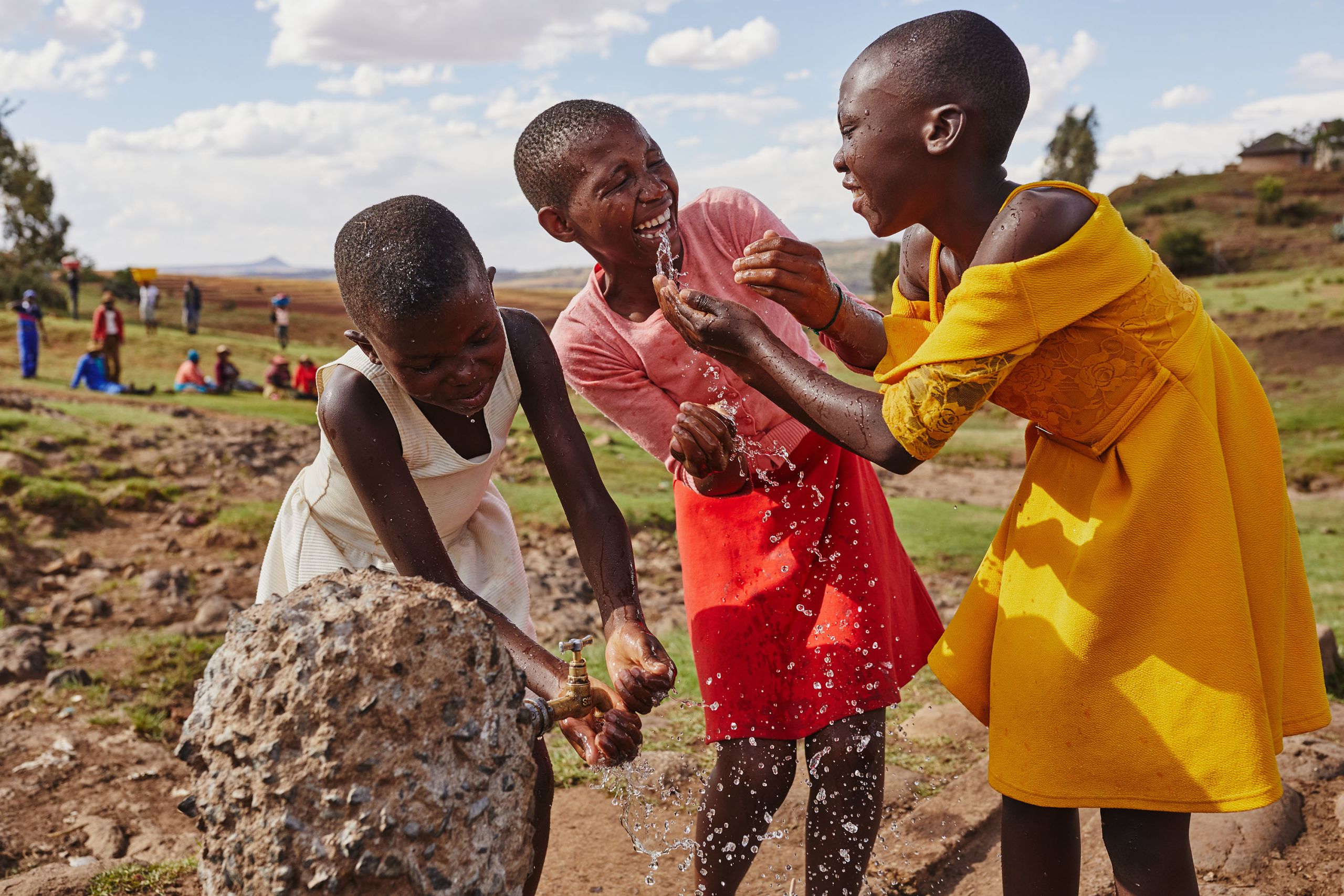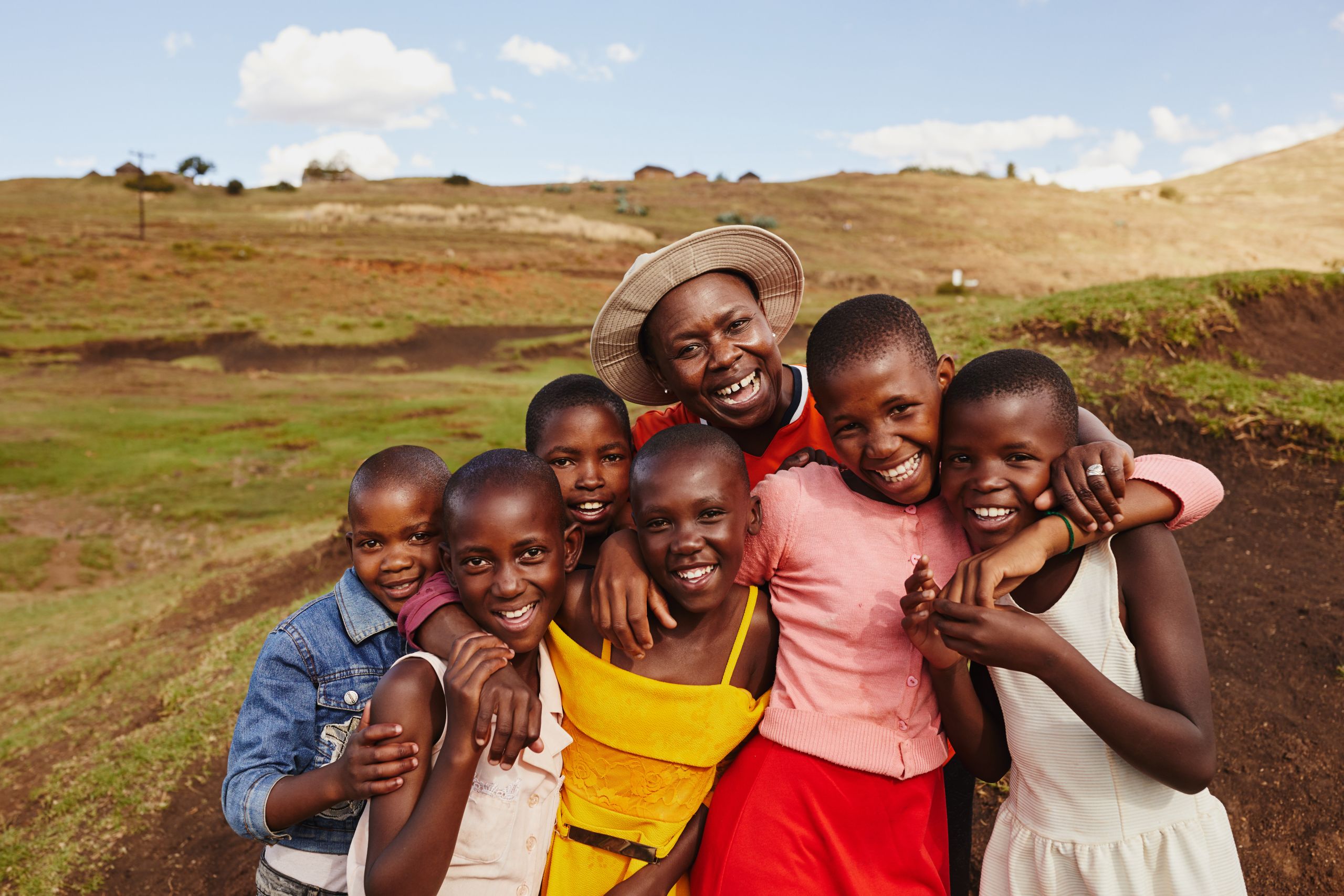Clean water; key to breaking the chains of poverty
Through Child Sponsorship, Lieketso and other children in her community have the tools, time and energy to focus on their futures

What if today was the first day you didn’t have to have to share your drinking and bathing water with the animals?
How would it feel to know that for the first time, you’d also be able to get your homework done instead of carrying a heavy container of water a long way after dark?
12-year-old Lieketso in Matlameng, Lesotho knows exactly how it feels – it feels amazing!
“Every day, my friends and I had to go get water from a hole. We had to kneel on the muddy ground to scoop it out, and most of the time the water was muddy too because the animals had got there first,” explains Lieketso.
“Then, we would have to wait for the mud to settle before we got our water and that would take a very long time. Our parents would get very worried because we would get home late, and we didn’t have time to do our homework.”
On top of that, the water they collected often made them sick, but it was their only option.
“I used to suffer from diarrhoea all the time. I would miss school, and by the time I got back, a lot had been covered while I was away. Sometimes I would also get a skin rash, so I would have to stay home until it disappeared or go to the clinic. Then I would miss even more school.”

Liekesto and her friends are not the only ones. According to United Nations Special Rapporteur Leo Heller, water, sanitation and hygiene is at the centre of the poverty cycle that affects almost two in every three people in Lesotho.
Dirty water leads to illness, which leads to less time working or studying, which in turn leads to lower incomes, and makes escaping the cycle of poverty ever more difficult. During the COVID-19 pandemic, the consequences of poor water, sanitation and hygiene have become even more devastating.
That’s why safe, fresh water is key to breaking the cycle. By installing water pumps so that communities have clean, running water near their homes, sponsored children and their communities are healthier, more protected from sickness and have better personal hygiene.
But, they are also empowered to build a stronger future for themselves, because they can spend their time studying, working and playing instead of carrying water – over time the impact on their health and well-being is exponential.
“We are taking the issue of water access very seriously and especially during this time of COVID-19. We consider it our duty to keep educating the children and the community members on the importance of hand washing as well as keeping generally clean,” says World Vision’s Community Development Facilitator in the Lieketso’s village, Moeketsi Makhalemele.
World Vision’s work on water, sanitation and hygiene has ramped up across Lesotho to meet the challenges of COVID-19. In 2020, we have built more than 7000 handwashing facilities, started 22 water, sanitation and hygiene clubs for kids, and reached over 12,000 people with hygiene information.
In Matlameng, Lieketso is one of more than 3000 children who can now use the new water tap instead of the dirty water hole.
“We no longer have to share water with animals,” she says. “We no longer have to wait when we get to the source. We now have time to do our homework after school – something we never had. Diarrhoea is now a thing of the past but most importantly we are now able to wash our hands frequently and stay safe from COVID-19.”
The New Year is looking bright for Lieketso and her friends.
